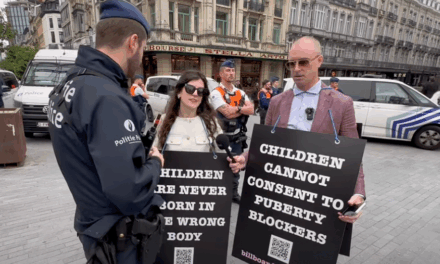In a recent conversation, former First Lady Michelle Obama shared her views on the rising concern surrounding children’s social media use, calling for parents to adopt a firmer stance. She highlighted the urgent need for families to establish boundaries and monitor the online activity of their children, even though it may cause discomfort for both parties involved.
During an event aimed at promoting her new book, Obama expressed her frustrations regarding the pervasive influence of social media in the lives of young people. She acknowledged the complexities and emotional strain often associated with setting limitations on internet use. However, she firmly believes that parents have a critical role in guiding their children through the digital landscape, which can often be a treacherous terrain for young minds.
“I know it’s hard,” Obama remarked, referring to the challenge parents face when attempting to control their children’s access to social media platforms. She continued, “It’s painful to see your kids upset when they’re denied something they so desire, like that new app or social media account. But as parents, our job is to keep them safe, and sometimes that means being the ‘bad guy’.”
Obama’s comments come at a time when numerous studies indicate the correlation between excessive social media use and negative mental health outcomes among adolescents. Issues such as anxiety, depression, and body image concerns have all been increasingly linked to social media engagement. As a result, experts have begun urging adults to shield their children from the potential harms that come with unfettered internet access.
Throughout her discussion, Obama pointed out that the responsibility does not solely rest on the shoulders of parents. She highlighted the need for technology companies to actively engage in creating safer online environments for children. “It’s not just about parental control,” she said. “We need tech companies to step up and take accountability for the products they put in the hands of our kids.”
Indeed, the call for increased safety standards has raised significant dialogue among various stakeholders, including educators, policymakers, and tech industry leaders. The urgency of the matter has prompted many to advocate for regulations that prioritize child safety while using social media.
Obama also reflected on her own experiences as a mother, sharing insights about her daughters’ critical formative years. She recounted instances where she had to enforce strict rules concerning screen time. “It wasn’t always easy,” she conceded. “But in the long run, our kids have to learn to navigate the world with the skills that they need, and that includes managing their online presence.”
The implications of allowing unrestricted social media use can manifest in several detrimental ways. As children and teenagers spend more time online, they often encounter cyberbullying, misinformation, and other harmful behaviors that surface in digital spaces. According to data released by the Pew Research Center, a significant percentage of teens report having experienced some form of online harassment. This troubling trend underscores Obama’s emphasis on the necessity of parental supervision and conversation around digital engagement.
Building an open dialogue with children about the potential risks associated with social media is vital, according to experts in child psychology. Obama echoed this sentiment by encouraging parents to maintain an ongoing conversation with their children about their online experiences. “Ask them what they’re doing online, who they’re talking to, and how it makes them feel. Create an environment where they feel comfortable discussing these issues,” she advised.
Moreover, the former First Lady underscored the role of education in helping children understand the importance of digital citizenship. She advocated for schools to incorporate lessons about responsible online behavior into their curricula. “If we give our kids the tools to understand their own online presence, we empower them to make better choices,” she said. “Education is key in this process.”
As Michelle Obama continues to navigate her post-White House life, her advocacy for youth and family continues to flourish. She has increasingly focused her efforts on addressing the challenges young individuals face in today’s world, especially concerning mental well-being and social interactions shaped by technology.
In response to her call for action, many parents have expressed their support for her message. Several have reported feeling overwhelmed by the pace of technology and its effects on young minds. A poll conducted by child welfare organizations indicated that a large majority of parents expressed concern regarding the amount of time their children spend online, and many expressed a desire for assistance in navigating these challenges.
Amid the mounting pressure to adhere to social media trends, children often face a unique set of psychological pressures that can greatly affect their self-esteem and mental health. Thus, parents and guardians are urged to stay informed about the platforms their children use and establish healthy habits around screen time.
As discussions about the dangers of social media and its impacts on youth progress, the importance of mindfulness remains a significant theme. Encouraging meaningful off-screen engagement, whether through outdoor activities, sports, or family time, can help counterbalance the virtual interactions that dominate so many young lives.
In conclusion, Michelle Obama’s call for parents to adopt a more rigorous approach to their children’s social media use resonates deeply in an age defined by rapid technological advancement. While this shift may provoke challenging conversations, it also holds the potential for fostering stronger bonds between parents and children. Through listening, understanding, and setting firm yet loving boundaries, families can guide their children toward safer and more mindful engagement with technology, ensuring they thrive in both the online and offline worlds.
































